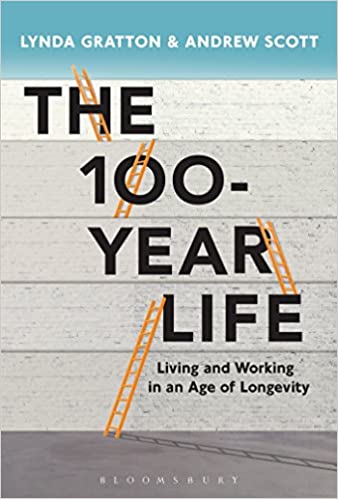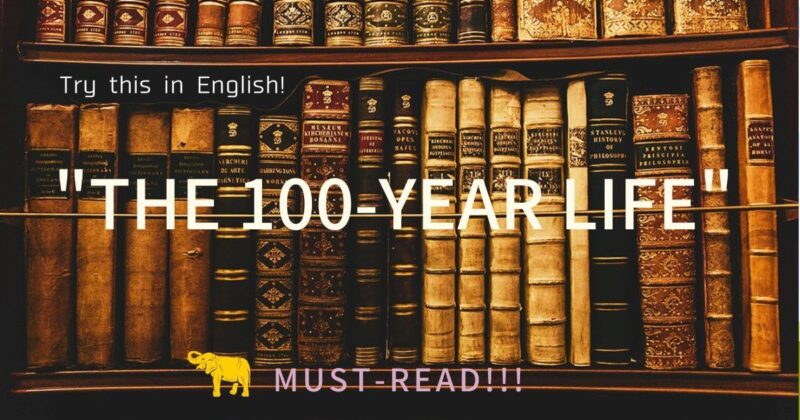Hi! It’s konkaz (@konkazuk) here.
I am going to feature some of the books I have read in English with my blog post from now on…

But first of all, let me talk about some of my ideas that could be helpful for you to read English-written books efficiently.
Reading a book requires some sort of patience and often takes some time to finish especially for those who don’t have a habit of doing it…

In this modern age with lots of information from different fields surging in daily, out-putting is regarded as the most important procedure when you learn things.
Thus, how much you can explain the content of the book after you have read it, could be a barometer of how much you have absorbed what is written in the book .
Nowadays YouTubers are conveniently posting the summaries of popular books on their YouTube channels.
There are lots of books I would love to read, however, how many books you can read a year is limited therefore, sometimes I make the most of it in order to collect some necessary information.
However, there is a good deal of merit in reading actual book (physical or electrical) for the purpose of learning English.
It’s because…
There areparticular words and expressions you will encounter which are essential to understand the structure of the content, and as you come across them so many times, these useful vocabularies will sustain in your head as English general knowledge by the time you have finished reading the book.

(But, of course, it is essential to output these vocabularies if you want to stick them in your head…)
Therefore, carefully selecting which vocabularies you are going to look into will be deadly important.
If your English level is still low, the amount of new vocabularies you come across each time you turn the page must be quite a lot. And if you pick every single new one you bump into in the book and check its meaning, it will take a good amount of time to finish even a single chapter,
This slow process could greatly put you off and will be a good reason for you to give up reading.

And moreover, the initial purpose of reading the book, which is to understand its content could be involuntarily shifted to just learning new English vocabularies.
(This probably is the worst case and there will be no point of reading a book!)
Therefore, I recommend you making good efforts to kill your desire of looking intonew vocabularies whenever you bump into them.
It’s just a waste of your time trying to understand every word of the book in English.
“Creating a habit of checking everything in details while you read will become a deadly obstacle in the future to develop your ability to understand the whole content of the book.“

So, how do we proceed?
For example, there are those particular vocabularies and phrases that appear every time you turn the page.
Then, it’s time for you to find out the meaning of them.
They are most likely the essential keywords to understand the content of the book.
No matter how many non-essential vocabularies you try to memorise, they will disappear from your head in due course, anyway.
Therefore, rather than wasting your time spending to nail the meanings of non-essentials, , it’s better moving on and trying to grab the structure and the key points even if your comprehension of the book can be… let’s say only 60% or so.
And after that, once again, go back to the table of contents, and try to output what you have understood for each chapter briefly.
This could be a very tough task, especially if your English level is still the beginner’s, however it will brush up your ability to summarise the content of the book in English.
Anyway, that is enough of introduction…
The first book I am going to feature with this new series is… this one!

“THE 100-YEAR LIFE”
The book was co-written by London Business School’s professors, Lynda Gratton (management practice) and Andrew Scott (economics).
By the way, this book has been translated into Japanese with the title of “LIFE SHIFT”

Although, the book was published in 2016, it’s not yet too late for you to pick this and have a look. The important thing is to live with the knowledge we can acquire from this book.
This book will tell you where you are currently standing at in our fast-changing modern society.
On the contrary, if you have not realized what is written in this book yet, the later you collect the information, tricker it gets for you to adjust your life to the change of time.
So, I guess those who were able to grab this book when it just came out are extremely lucky ones, and those who have acted in accordance with what is written in the book must be miles ahead of those who haven’t.

In summary, what authors are trying to tell us in this book is…
Since the life expectancy of human beings has been greatly extended, if you are still leading your life with last century’s concept and have not yet made any attempt to adjust your lifestyle to what is currently going on in the world, you will have an extremely tough time in the future.
In other words…
the party is over!
Anyway, I believe these three phrases…
- “Three stage life”
- “Tangible assets”
- “Intangible assets”
are the keys to understand this book, so let’s check them out!
“Three stage life”

As you go on reading, you will frequently bump into this phrase “Three stage life“.
The phrase has been labelled by the authors as “curse” because this dated concept is haunting many people’s head and is preventing them from preparing for their future…
And then, after briefly showing Human Mortality Database created by demographers to prove the reality of human’s 100-year life, they feature three hypothetical characters, which are…
- Jack (born in 1945)
- Jimmy (born in 1971)
- Jane (born in 1988)
Each of them is characterised as typical of their generation.
Subsequently, a series of scenarios for each character is set, and we can see how longer life expectancy will impact differently on each of them and how they should deal with it.
“Three stage life” is a form of life plan which was established in 20th century, and is typically divided into three stages as…
Education year ➡︎ Working year ➡︎ Retirement year
This form meshes perfectly with Jack’s generation who have been active through the second half of 20thcentury, and whose life expectancy is said to be about 70 years.
However, it won’t work fine for Jimmy’s generation with a life expectancy of 85 (who are, at this point, roughly between late 40’s and early 50’s)
This generation had been watching their parents’ generation (i.e. Jack’s generation) while they grew up, therefore the concept of “Three stage life” is deeply ingrained in them.
Although Jimmy’s generation is aware of the fact that the time has been changing rapidly, most of them are yet under the spell of “Three stage life”.
And unfortunately, if they keep following the form of “Three stage life”, by the time they have realised that the situation is totally different from their parents’ time, towards the very end of their life, it will be too late to deal with the situation they are in. (ex. no savings, no skills that is required to get a new job, etc.)
Therefore, here, authors are showing some examples of what sort of move each generation (especially Jimmy’s and Jane’s) should make as well as introducing some additional stages we could go about in order to overcome what is waiting for us.
This issue we need to deal with is not only for individuals but also for whole the society itself.
Even the law of the country, systems of the companies, etc. are still clinging onto the social norms of “Three stage life”, and their adaptation for the situation caused by the combination of technological innovation and longevity is said to be well running behind…
“Tangible assets“

First of all, Tangible [tændʒebl] means…
real and not imaginary, perceptible by touch, or having actual physical existence.
And Asset [æset] means…
a useful or valuable thing or person oran item of property owned by a person or company regarded as having value and available to meet debts, commitments, or legacies.
Therefore, “Tangible assets” here basically mean… “money”.

In this book, they indicate…
your retiring year based on what sort of income you are currently earning,and how much living expenses you will need to survive through the years after retirement
…kindly in graphs with specific numbers.

Well… having read this, I felt more like vomiting than it made me sweat, to be honest…
But… just like I had been taking things easy till I read this book, I presume many of us have only vaguely tried to envisage how our future in some decades will look like… and we never stop and imagine specifically like…
- how much you will possibly have saved up, considering your yearly income?
- what kind of future events will be taking place and how much you will need for them?
- how fit you could be to be able to work?
- if you are making some investments, how much it will have been made?
when you reach a certain age.
This is absolutely a brain freeze situation.

It’s simply no good, is it?
Speaking of generation, I’m pretty much in Jimmy’s, but with no specific skills, therefore, considering my current age and what will be needed for my kids’ future, it looks like… if I don’t act immediately to acquire some good skills and knowledge which are required to live in modern society, I will be very likely to find myself entering old age with insufficient resources.
One of the reasons why I have started writing blog post is that I thought I would be able to learn lots of things from writing skills to IT-related matters.
And furthermore, they are warning that even those who already have great skills will struggle, if they don’t constantly update them in order to adapt to the needs of fast changing time.

The outlook for the future of state pension system with pyramid scheme does not look good at all (It looks absolutely doomed in Japan with formidably falling birth rates), therefore individual’s early start of investing money will be crucially important (for especially Jimmy and Jane’s generations) and we need to pass this information on to our kids’ so that they can prepare for their future.
In that sense, I felt like I had seen the light of hope when I heard the news back in March that financial education which includes leaning about investment trust, household budget management, etc. will be added to home economics class in high school in Japan commencing in April 2022.
Intangible assets

While “Tangible assets” are the “ones having actual physical existence”, “Intangible assets” ares the “ones without physical presence”.
Therefore “Intangible assets “ are the assets other than money.
For example….
- relationship with members of your family or with your friends.
- knowledge and skills you have acquired.
- your mental or physical health
are to be included.
When it comes to “asset building”, people tend to think about “saving money”, but authors are indicating that establishing “Intangible assets “ is far more important in this book.
That is because working on “Intangible assets “ will, actually, directly affect with building up “Tangible assets”.

As one of the scenarios for Jane’s generation and the one that is younger than hers, it is recommended that they explore the world from their early stage in order to experience many things, and try to make efforts to create relationships and acquire good skills which could lead to establishing “Tangible assets” in the future, before they get stuck by forming a family.
Incidentally, (I’m digressing a bit here, but…) one of my favourite Japanese bloggers called “hitode”, whose website I referred to a lot when I was setting up my blog site in the beginning, is also mentioning about the importance of “Intangible assets” in the field of blog writing in his“Merit of blog-writing” article… so, if you are interested, please check it out!
And finally, having mentioned about the importance of creating “Tangible assets”, authors are pointing out that…
with current system of the society, there is the fact that low income earners are forced to work long hours and this will limit their time for creating relationships, and their expense to keep up their good health conditions, therefore, at the end of the day, only limited number of people with a certain amount of assets will be able to make the most of the gift of 100-year life.
…sounds absolutely dreadful…
Anyway, this is it. What I have done here is only picking some “key phrases” for reading this book.
Hence, in order for you to take a first step, and also to feel the urgency of the matter, I totally recommend you reading this book…
konkaz

